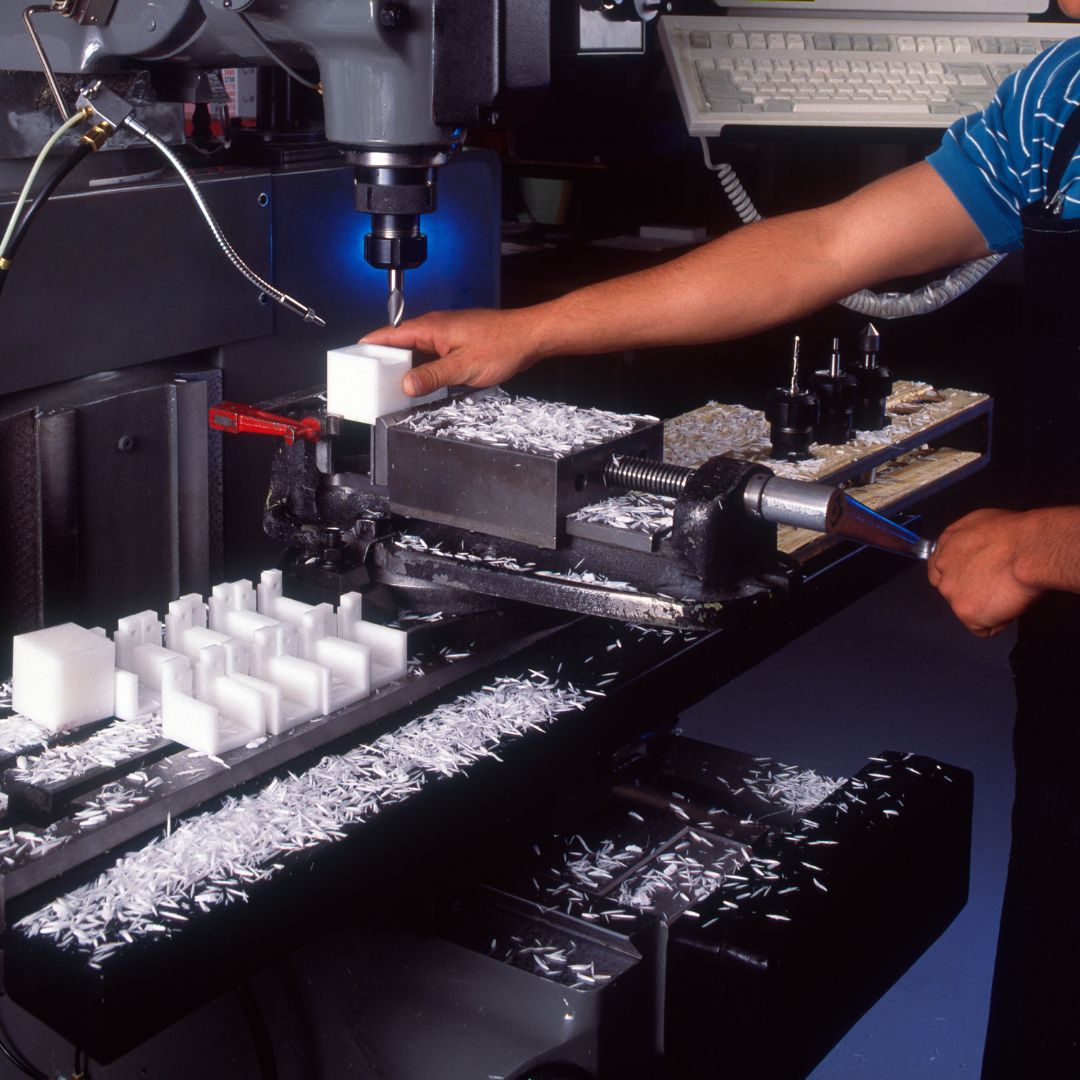On This Page
The Role of Plastic Machinists in Modern Manufacturing
Plastic machinists are specialized technicians who work extensively with plastic materials, creating essential components and products for industries such as automotive, medical, electronics, and consumer goods. Their contributions are vital in navigating the complexities of the modern manufacturing landscape.Understanding the Process Used By A Plastic Machining Company
Plastic machining involves removing material from a plastic workpiece to achieve specific shapes and sizes. Techniques employed by a plastic machining company include milling, turning, drilling, and grinding, with skilled plastic machinists using advanced machinery and technology to ensure precision in part production.Importance of Precision in Plastic Part Machining
Precision in plastic part machining is critical. Even minor deviations from specifications can lead to product failure, safety hazards, or increased production costs. Skilled plastic machinists minimize errors and optimize the machining process, ensuring that every part adheres to high-quality standards.Collaboration with Engineers and Designers
Plastic machinists often collaborate with engineers and product designers to develop prototypes and production runs. Their insights can significantly shape design decisions, making products both functional and manufacturable. This teamwork drives innovation and efficiency, allowing companies to bring products to market swiftly.Key Skills and Expertise of Skilled Plastic Machinists
To excel in plastic machining, machinists must possess a diverse skill set. Here are some key competencies that define a skilled plastic machinist.Technical Skills
- Machinery Operation: Proficiency in operating CNC (Computer Numerical Control) machines, lathes, and milling machines is crucial.
- Material Knowledge: Understanding various types of plastics, such as thermoplastics and thermosetting plastics, is vital. Each type has distinct properties that influence machining.
- Blueprint Reading: Skilled plastic machinists can read and interpret technical drawings and blueprints, ensuring accurate component production.
Problem-Solving Skills
Challenges can arise unexpectedly in modern manufacturing. Skilled plastic machinists excel at troubleshooting issues related to machinery, materials, and production processes. This ability is essential for maintaining production schedules and reducing downtime.Attention to Detail
Precision is paramount in plastic part machining. A skilled machinist possesses a keen eye for detail, ensuring that every step of the machining process is executed flawlessly. This includes monitoring tolerances, surface finishes, and dimensional accuracy throughout production.Impact of Plastic Machinists on Production Efficiency
The capabilities of plastic machinists greatly influence manufacturing efficiency. Their skills can enhance production processes in several ways.Streamlining Production Processes
By utilizing advanced machining techniques and technologies, skilled plastic machinists streamline production workflows. This efficiency results in shorter lead times and reduced costs, enabling companies to effectively meet customer demands.Reducing Waste
A proficient plastic machinist optimizes cutting paths and machining strategies, thereby minimizing material waste during production. This practice not only lowers costs but also supports sustainable manufacturing, a growing concern in today’s industry.Enhancing Product Quality
Quality control is critical in manufacturing. Skilled plastic machinists uphold high-quality standards through meticulous attention to detail and adherence to best practices, ensuring that every part meets or exceeds expectations.Innovations Driven by Skilled Plastic Machinists
As technology advances, plastic machinists drive innovation within manufacturing. They often adopt new techniques and technologies that enhance production capabilities.Advanced Machining Technologies
The integration of advanced machining technologies such as 3D printing and robotics is transforming manufacturing. Skilled plastic machinists increasingly utilize these technologies to create complex geometries and customized parts efficiently.3D Printing in Plastic Machining
3D printing, or additive manufacturing, allows for rapid prototyping and production of plastic components. Plastic machinists leverage this technology to reduce lead times and facilitate design iterations, enabling faster market entry for new products.Sustainable Manufacturing Practices
With heightened awareness of environmental issues, skilled plastic machinists explore sustainable practices. This includes optimizing processes to reduce energy consumption and waste and selecting eco-friendly materials for production.Challenges Faced by Plastic Machinists in Today’s Industry
Despite their vital role, plastic machinists face numerous challenges. Understanding these challenges is crucial for creating a more efficient workforce.Workforce Shortages
One pressing issue is the shortage of skilled labor. Many companies struggle to find qualified plastic machinists, limiting production capabilities and growth potential. This shortage underscores the need for industry initiatives aimed at training and developing new talent.Technological Advancements
While technology can enhance production, it requires machinists to continuously update their skills. Keeping pace with new machinery, software, and techniques can be daunting, particularly for those with years in the industry.Material Costs and Supply Chain Issues
Fluctuating material costs and supply chain disruptions can significantly impact manufacturing. Skilled plastic machinists must navigate these challenges to maintain efficiency while managing costs. For example, instances of delayed shipments have forced companies to adjust their production schedules, highlighting the need for flexibility and adaptability in the workforce.Future Trends:
| Skill/Trend | Description | Importance in Manufacturing |
| Machinery Operation | Proficiency in using CNC machines, lathes, and milling machines. | Ensures precision and efficiency in part production. |
| Material Knowledge | Understanding of thermoplastics and thermosetting plastics. | Influences choices in machining strategies and techniques. |
| Blueprint Reading | Ability to interpret technical drawings and blueprints. | Critical for accurate component production. |
| Problem-Solving Skills | Capability to troubleshoot machinery and production issues. | Essential for maintaining schedules and reducing downtime. |
| Attention to Detail | Keen eye for tolerances, surface finishes, and dimensional accuracy. | Guarantees high-quality standards in manufacturing. |
| Automation and Robotics | Use of automated systems and robotics in machining processes. | Increases productivity and allows focus on complex tasks. |
| Smart Manufacturing | Integration of IoT technologies and data analytics. | Enables optimization and informed decision-making. |
| Continuous Learning | Ongoing training to adapt to new technologies and methodologies. | Ensures competitiveness in a rapidly evolving industry. |

